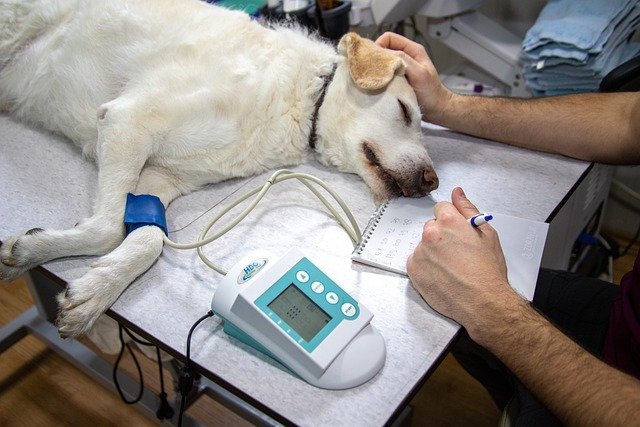Finding Dogs in Need of Adoption Near Me: A Practical Local Guide
Adopting a dog can be one of life's most rewarding experiences, bringing joy, companionship, and unconditional love into your home. However, navigating the adoption process requires careful planning, research, and preparation. From identifying reputable local shelters to understanding adoption fees and preparing your living space, successful dog adoption involves multiple considerations that ensure both you and your future pet are ready for this lifelong commitment.

Dog adoption offers countless benefits for both pets and families, creating meaningful bonds while providing homeless animals with loving homes. The process involves several key steps, from researching local options to completing post-adoption care, each requiring thoughtful consideration and preparation.
Where to Look: Local Shelters, Rescues and Online Listings
Local animal shelters serve as primary resources for adoptable dogs, typically housing animals from various backgrounds including strays, surrendered pets, and rescued animals. Municipal shelters often operate with limited resources but provide essential services including medical care, behavioral assessments, and adoption coordination. Private rescue organizations frequently specialize in specific breeds or focus on particular needs such as senior dogs or those requiring medical attention.
Online platforms have revolutionized pet adoption by connecting potential owners with animals across broader geographic areas. Websites like Petfinder, Adopt-a-Pet, and local shelter websites feature detailed profiles including photos, medical histories, and personality descriptions. Social media groups dedicated to local pet adoption also provide real-time updates about available animals and urgent placement needs.
Breed-specific rescue organizations offer another valuable avenue, particularly for those seeking particular dog types. These groups often have extensive knowledge about breed characteristics, health considerations, and specialized care requirements, making them excellent resources for first-time owners of specific breeds.
How to Evaluate Adoptable Dogs: Temperament, Health, and Needs
Assessing a potential adoptee requires careful observation of behavioral indicators and health status. Temperament evaluation should include interactions with both humans and other animals, response to various stimuli, and general demeanor in different environments. Many shelters conduct behavioral assessments that provide insights into a dog’s personality, energy level, and compatibility with children or other pets.
Health considerations encompass both immediate medical needs and long-term care requirements. Review available medical records, vaccination status, and any ongoing treatments or medications. Age-related factors significantly impact care needs, with puppies requiring extensive training and socialization while senior dogs may need specialized medical attention but often possess calmer temperaments.
Consider the dog’s exercise requirements, space needs, and grooming demands in relation to your lifestyle and living situation. High-energy breeds require substantial daily exercise and mental stimulation, while apartment living may be better suited to smaller or less active dogs.
The Adoption Process: Applications, Fees and Home Checks
Adoption procedures vary between organizations but typically begin with detailed application forms covering living situations, experience with pets, and lifestyle factors. Many shelters require references from veterinarians, landlords, or personal contacts to verify suitability for pet ownership.
Home visits or virtual home checks have become standard practice, allowing adoption counselors to assess living environments and identify potential safety concerns. These evaluations focus on secure fencing, hazardous materials, and adequate space rather than home aesthetics or cleanliness standards.
| Service Type | Provider Examples | Cost Estimation |
|---|---|---|
| Municipal Shelter Adoption | Local Animal Control, City Shelters | $50-$200 |
| Private Rescue Adoption | Breed-Specific Rescues, No-Kill Shelters | $150-$500 |
| Purebred Rescue Adoption | Breed Clubs, Specialized Organizations | $200-$600 |
| Senior Dog Adoption | Senior Pet Programs | $25-$150 |
Prices, rates, or cost estimates mentioned in this article are based on the latest available information but may change over time. Independent research is advised before making financial decisions.
Adoption fees typically cover spaying/neutering, initial vaccinations, microchipping, and basic medical care. Some organizations offer reduced fees for senior citizens, military personnel, or during special adoption events.
Preparing Your Home: Supplies, Safety and Family Readiness
Home preparation involves both physical modifications and supply acquisition to ensure a safe, comfortable environment. Essential supplies include appropriate-sized food and water bowls, a comfortable bed, collar with identification tags, leash, and initial food supply matching the dog’s current diet to prevent digestive upset.
Safety measures require removing or securing potential hazards such as toxic plants, chemicals, small objects that could be swallowed, and electrical cords. Establishing designated spaces for feeding, sleeping, and play helps dogs adjust more quickly to their new environment.
Family preparation includes discussing responsibilities, establishing rules and routines, and ensuring all household members understand proper interaction techniques. Children particularly benefit from education about gentle handling, recognizing stress signals, and respecting the dog’s space during adjustment periods.
After Adoption: Transition Care, Training and Local Support Resources
The initial transition period typically lasts several weeks as dogs adjust to new routines, environments, and family dynamics. Maintaining consistent schedules for feeding, exercise, and bathroom breaks helps establish security and reduces anxiety-related behaviors.
Training should begin immediately with basic commands, house training reinforcement, and positive behavior encouragement. Many communities offer puppy kindergarten classes, basic obedience training, and specialized behavioral support through local training facilities, pet stores, or veterinary clinics.
Local support resources include veterinary clinics for ongoing healthcare, dog parks for socialization opportunities, and pet supply stores for ongoing needs. Many areas also have dog training clubs, rescue volunteer groups, and online community forums that provide ongoing support and advice for new pet owners.
Building relationships with local veterinarians, groomers, and pet care providers creates a support network that enhances long-term success. Regular veterinary checkups, proper nutrition, consistent training, and adequate exercise form the foundation of responsible pet ownership that ensures both dogs and families thrive together.
Successful dog adoption requires commitment, preparation, and ongoing dedication to providing proper care, training, and love. The rewards of rescue adoption extend beyond personal satisfaction, contributing to animal welfare efforts and making space for additional rescues in shelters and rescue organizations.




